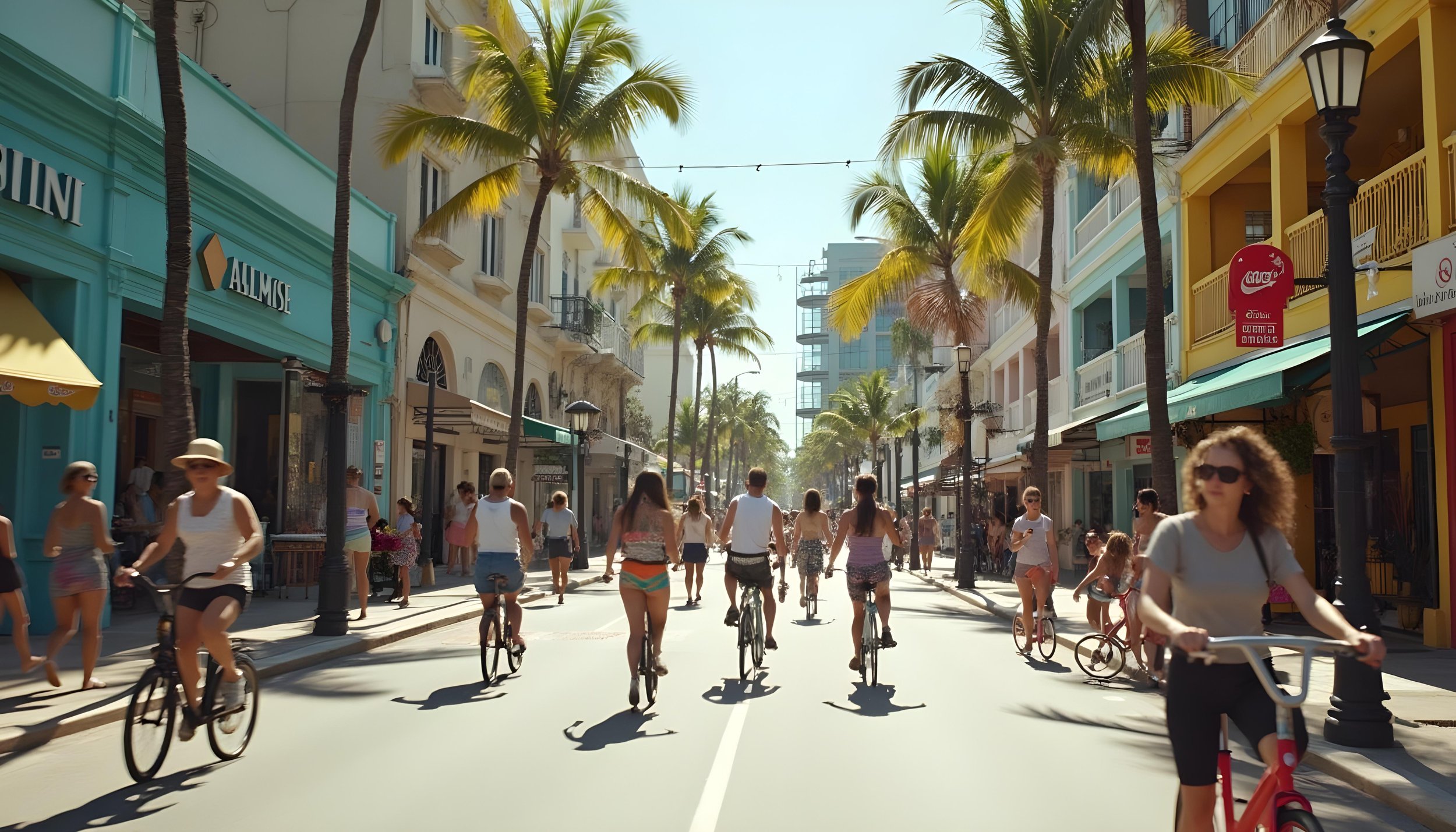Is It Common for People in Miami to Not Have a Car?
Miami, known for its vibrant culture, beautiful beaches, and bustling nightlife, presents a unique urban landscape that influences the transportation choices of its residents. While owning a car is often considered a necessity in many American cities, Miami's distinct characteristics lead to a different narrative. This blog will explore the factors that contribute to the prevalence of car ownership—or lack thereof—in Miami, and whether it is common for people in this city to navigate life without a vehicle.
In cities across the United States, car ownership is often equated with freedom and mobility. However, in Miami, the scenario is more nuanced. The city's subtropical climate, extensive public transportation options, and walkable neighborhoods contribute to a lifestyle where many residents opt not to own a car. Additionally, the growing trend of urban living has led to an increase in individuals who prefer alternative modes of transportation.Interestingly, while discussing urban living in Miami, one might also consider the importance of maintaining clean living spaces. Just as residents prioritize their daily commutes and transportation needs, they often seek services like Deep Cleaning Seattle to ensure their homes are pristine. This parallel highlights how lifestyle choices intersect with practical needs in urban environments.
Factors Influencing Car Ownership in Miami
Public Transportation Options
Miami boasts a range of public transportation services including buses, Metrorail, and Metromover systems that connect various neighborhoods and key locations. Many residents find these options convenient for commuting to work or leisure activities.
The affordability of public transit compared to the costs associated with car ownership—such as insurance, maintenance, and parking—makes it an attractive alternative for many.
Urban Design and Walkability
Miami's urban planning emphasizes walkable neighborhoods, particularly in areas like South Beach and Downtown. This design encourages residents to walk or bike rather than drive.
The presence of bike lanes and pedestrian-friendly streets further supports this lifestyle choice.
Cultural Attitudes Towards Cars
In Miami's diverse cultural landscape, there are varying attitudes towards car ownership. Some communities prioritize convenience over ownership due to the high costs associated with maintaining a vehicle.
The younger population, particularly college students and recent graduates, often lean towards ridesharing services and public transport instead of investing in a personal vehicle.
Economic Considerations
The cost of living in Miami can be high, prompting many residents to allocate their finances toward housing and other essentials rather than car payments.
For some individuals, especially those working in hospitality or service industries with fluctuating hours, owning a car may not be economically viable.
The Role of Ridesharing Services
The rise of ridesharing platforms such as Uber and Lyft has transformed transportation dynamics in Miami. These services provide flexibility and convenience for those who do not own cars:
Accessibility: Ridesharing allows residents to access transportation on-demand without the commitment of ownership.
Cost-Effectiveness: For individuals who only occasionally need a ride, using ridesharing can be more economical than owning a vehicle.
Environmental Considerations: With growing awareness around environmental issues, some residents prefer ridesharing as it can reduce the number of cars on the road.
House Cleaning Services: A Complementary Lifestyle Choice
As people navigate their lives without cars, they often rely on various services to maintain their homes. This includes professional house cleaning service providers that cater to busy lifestyles:
Convenience: Just as public transport offers convenience for commuting, professional cleaning services provide ease for maintaining cleanliness without the hassle of doing it oneself.
Time-Saving: For those balancing work and social life without a vehicle, outsourcing cleaning tasks can free up valuable time.
Challenges Faced by Non-Car Owners
While there are numerous benefits to not owning a car in Miami, challenges do exist:
Limited Access to Certain Areas
Some neighborhoods may not be as well-served by public transport or ridesharing options, making access difficult for non-car owners.
Weather Conditions
Miami's tropical climate can pose challenges for walking or biking during heavy rain or extreme heat.
Social Activities
Attending events or gatherings outside one's immediate neighborhood may require careful planning regarding transportation.
Conclusion: A Unique Urban Experience
In conclusion, while it may not be common for everyone in Miami to live without a car, there is certainly a significant portion of the population that embraces this lifestyle choice. Factors such as robust public transportation options, urban design promoting walkability, economic considerations, and the rise of ridesharing services contribute to this trend. As residents navigate their daily lives—whether through public transit or utilizing professional cleaning services—they embody a modern urban experience that prioritizes convenience and sustainability. Ultimately, whether one chooses to own a car or not reflects broader lifestyle preferences shaped by Miami's unique environment.
In this evolving landscape where traditional notions of car ownership are being redefined, opting for alternatives can lead to more sustainable living practices—an ethos that extends beyond transportation into areas like home maintenance through professional cleaning services that help maintain quality living standards without the need for personal vehicles.
